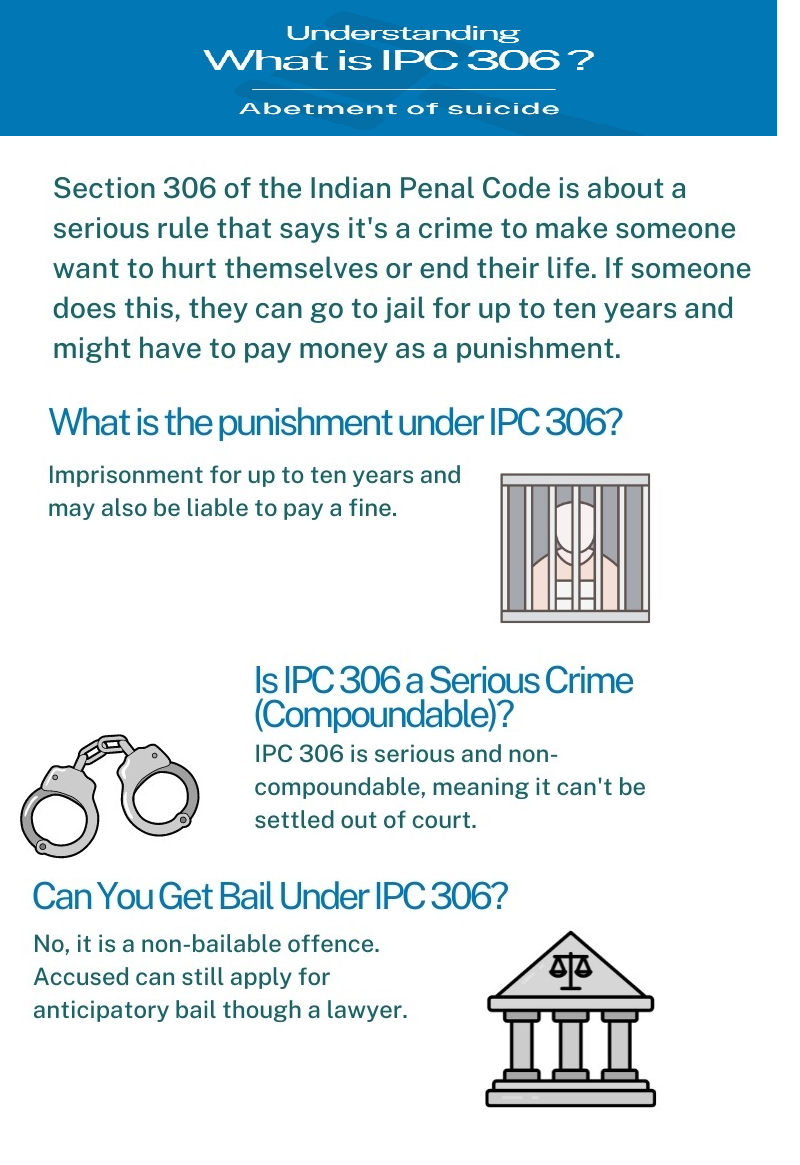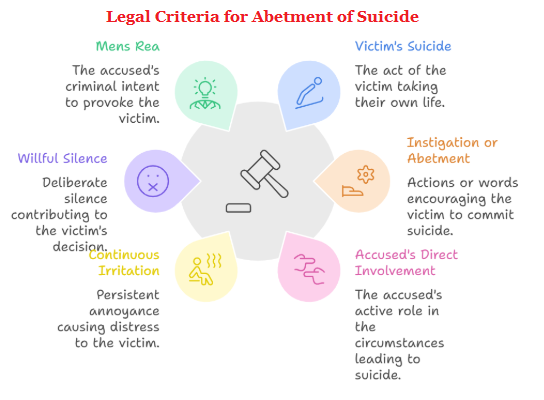Recently, Supreme Court cleared charges against a bank manager accused of abetting the suicide of a man who allegedly took his own life after he was unable to repay his bank loans.
A Lancet study stated that suicide death rates in India are among the highest in the world and a large proportion of adult suicide deaths occur between the ages 15 and 29.

In India, the overall conviction rate for all crimes under the IPC was 69.8%. It was 54.2% for cognizable offences, which includes abetment to suicide, where an arrest can be made without a warrant.

In October 2024, the Supreme Court quashed the case of abetment of suicide in which a salesperson died by suicide after alleged harassment from senior officers in his company who were forcing him to opt for a voluntary retirement scheme.
India’s National Suicide Prevention Strategy, released in 2022, highlights the necessity of adopting a more comprehensive approach.
The Indian Express| Standards for Abatement of Suicide Charges
Related News - Youth Suicides in India